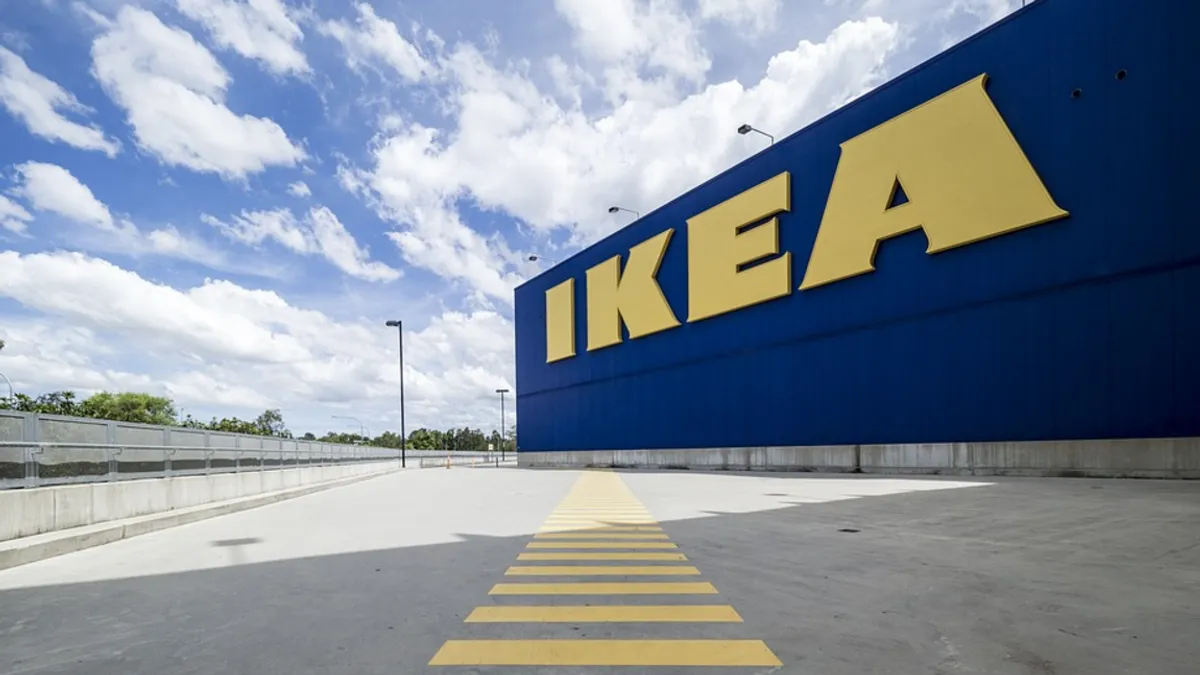Dive Brief:
- Ikea has reached its goal of using electric vehicles (EVs) to make all home deliveries in Shanghai, part of the company's 2018 pledge for global EV delivery service by 2025, as reported by Fast Company.
- A partnership with Shenzhen truck-leasing company DST "allowed us to secure vehicles faster, cutting months off the timeline," according to Angela Hultberg, who oversees sustainable mobility at Ingka Group, Ikea’s parent company. DST manages more than 16,000 logistics vehicles and has thousands of charging stations in Shanghai and other cities.
- Ikea is aiming for similar results in New York, Los Angeles, Paris and Amsterdam by 2020, according to Fast Company.
Dive Insight:
Ikea has an overarching goal of reducing the carbon footprint of its products by 70% by 2030, including removing all single-use plastics from its products and stores by 2020 and using 100% renewable energy.
Hultberg called Shanghai, a city plagued by pollution, "the very problem we’re trying to address." How bad is it? On Jan. 25, hundreds of flights were delayed or canceled as record levels of air pollution shrouded the city in smog, prompting authorities to issue the highest level of health warning, Scientific American reported. The city’s pollution index ranged from 23 to 31 times the levels recommended by international health officials.
The Swedish company also said it is trying to change customer behavior to encourage low-emissions transport. Its expansion strategy is to establish smaller stores in urban cores, rather than its typical "big box" facilities, so customers can reach them via public transportation, walking or biking. A new store in Shanghai, for example, will open in 2020 and connect directly to the city’s metro system. It also will be more than 130,000 square feet smaller than the company’s typical 400,000-square-foot building.
Ikea is one of 31 members of EV100, a global initiative committed to "accelerating the transition to electric vehicles (EVs) and making electric transport the new normal by 2030." Other members include Air New Zealand, Bank of America, Deutsche Post DHL, HP, the Port Authority of New York & New Jersey and Unilever, to name a few.
EV100 said the transport sector accounts for 23% of global energy-related greenhouse gas (GHG) emissions. It views electric transport as a major solution in cutting millions of tons of greenhouse gas emissions per year, as well as curbing transport related air and noise pollution.
"With businesses owning over half of all registered vehicles on the road, it is crucial that companies lead the shift to electric vehicles," EV100 said. "By setting out their future EV purchasing requirements on an ambitious timescale, companies can drive mass roll-out and make electric cars more rapidly affordable for everyone around the world."













